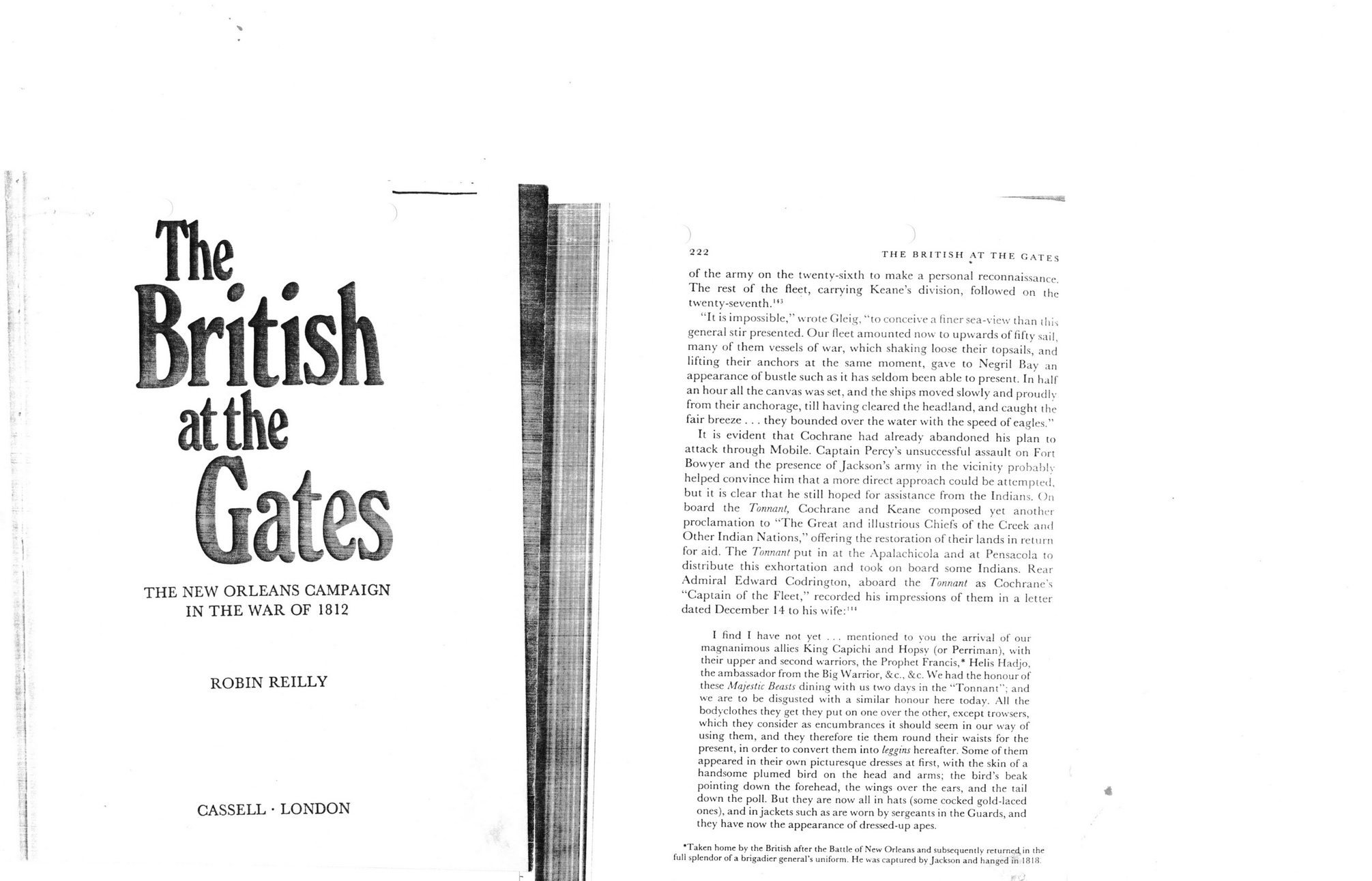This text was obtained via automated optical character recognition.
It has not been edited and may therefore contain several errors.
THE NEW ORLEANS CAMPAIGN IN THE WAR OF 1812 ROBIN REILLY CASSELL ? LONDON ) ) 222 THE BRITISH AT THE GATES of the army on the twentv-sixth to make a personal reconnaissance. The rest of the fleet, carrying Keane?s division, followed on the twenty-seventh.1?1 ?It is impossible,? wrote Gleig, ?to conceive a finer sea-view than this general stir presented. Our fleet amounted now to upwards of fifty sail, many of them vessels of war, which shaking loose their topsails, and lifting their anchors at the same moment, gave to Negril Bay an appearance of bustle such as it has seldom been able to present. In half an hour all the canvas was set, and the ships moved slowly and proud I v from their anchorage, till having cleared the headland, and caught the fair breeze . . . they bounded over the water with the speed of eagles." It is evident that Cochrane had already abandoned his plan to attack through Mobile. Captain Percy?s unsuccessful assault on Fort Bowyer and the presence of Jackson?s army in the vicinity prohahlv helped convince him that a more direct approach could be attempted, but it is clear that he still hoped for assistance from the Indians. On board the Tonnant, Cochrane and Keane composed yet another proclamation to ?The Great and illustrious Chiefs of the Creek and Other Indian Nations,? offering the restoration of their lands in return for aid. The Tonnant put in at the Apalachicola and at Pensacola to distribute this exhortation and took on board some Indians. Rear Admiral Edward Codrington, aboard the Tonnant as Cochrane?s ?Captain of the Fleet,? recorded his impressions of them in a letter dated December 14 to his wife:"1 I find I have not yet . . . mentioned to you the arrival of our magnanimous allies King Capichi and Hopsy (or Perriman), with their upper and second warriors, the Prophet Francis,* Helis Hadjo, the ambassador from the Big Warrior, &c., &c. We had the honour of these Majestic Beasts dining with us two days in the ?Tonnant?; and we are to be disgusted with a similar honour here today. All the bodyclothes they get they put on one over the other, except trowsers, which they consider as encumbrances it should seem in our way of using them, and they therefore tie them round their waists for the present, in order to convert them into leggins hereafter. Some of them appeared in their own picturesque dresses at first, with the skin of a handsome plumed bird on the head and arms; the bird?s beak pointing down the forehead, the wings over the ears, and the tail ? down the poll. But they are now all in hats (some cocked gold-laced ones), and in jackets such as are worn by sergeants in the Guards, and they have now the appearance of dressed-up apes. ?Taken home by the British after the Battle of New Orleans and subsequently returnedin the full splendor of a brigadier general?s uniform. He was captured by Jackson and hanged in 1818.

Battle of 1814 P222